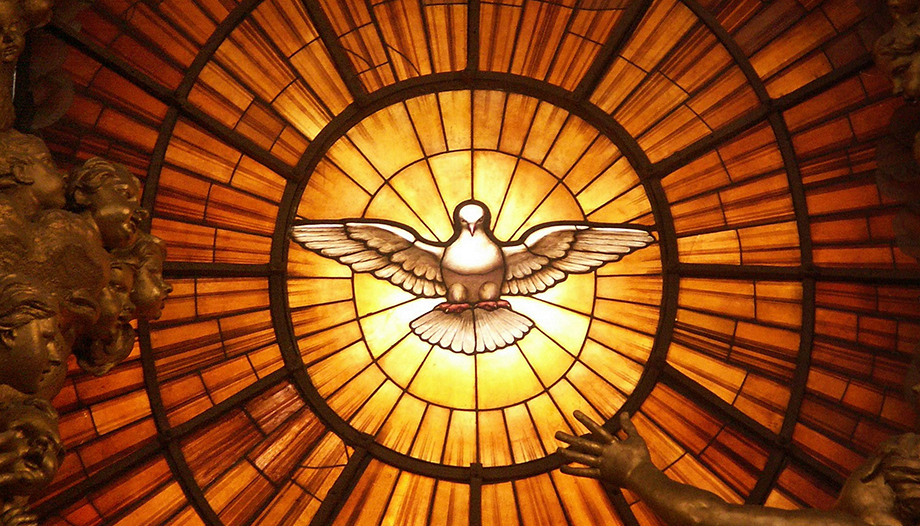In the New Testament, especially in St. Paul, charisms are seen as particular gifts that, beginning with baptism, allow the different members of the Church to find their place and their specific and complementary role, for the good and growth of the whole Body. Can this notion be extended to realities that are not only personal but communitarian, such as the new movements and communities? The Pauline terminology alludes both to essential or structural realities for the Church and to gifts of a more circumstantial character, which the Holy Spirit grants at a given moment in order to face the particular challenges of the times. The Second Vatican Council reserved the notion of charism for gifts of a circumstantial character (cf. Lumen Gentium12), and distinguished them from the "sacraments and ministries" and "hierarchical gifts", while at the same time indicating as their recipients "the faithful of all orders".
The notion of charism in the communitarian sense was soon applied to the field of consecrated life. The Lord never ceased to raise up forms of consecrated life that responded to the concrete needs of his time, in many cases on the fringes of the program. hierarchical pastoral careThe Holy Spirit's free initiative has been manifested. On the other hand, in the twentieth century various forms of movements and communities have also arisen that are suitable for strengthening the call to holiness and evangelization among the baptized. The Second Vatican Council addressed them from the point of view of baptismal life: the faithful can act on their own initiative in many ways, without waiting for the hierarchy to authorize or assume them. One could even speak of a right of the Holy Spirit himself to arouse in the Church original forms of holiness, fruitfulness and apostolate (cf. Letter Iuvenescit Ecclesia, Congregation for the Doctrine of the Faith, 2016).
When a new community or a new movement is born, what responsibility can the ecclesiastical hierarchy exercise? The initiatives of the Holy Spirit are not always evident: there is a gap between what happens visibly and the origin to be attributed to it. It can be an initiative of the Holy Spirit, or a more or less happy fruit of simple human genius, or even an influence of the Evil One. Discernment is necessary, and pastors are called upon to "judge the authenticity of these gifts and their proper use." (LG n. 12); identify them, support them, help them to integrate into the communion of the Church and, if necessary, correct imbalances.
The pastoral accompaniment of new communities requires special attention. In recent years there have been scandals concerning the founders of some of them, sometimes known precisely for their fruitfulness and dynamism. Consideration must be given to the founder himself and his spiritual equilibrium, as well as the functioning of the community around him. In a certain sense it is the whole community that constitutes the fundamental subject of the community charism, which includes gifts, abilities and talents that the founder does not find in himself, but in his brothers, and from this point of view he is the servant of their development. The mystery of the encounter between divine grace and human misery must always be kept in mind. The gifts of God and the sins of men in a certain way intertwine; sin can pervert from within the exercise of initially authentic charisms, or vice versa, the great misery of the possessor of a charism can make its divine origin more evident.
The ecclesial accompaniment of the new communities and their own charisms demands both benevolence and authority. Authentic charisms could survive in a paradoxical state, bearing undeniable fruits while being, so to speak, unbalanced. Can we say that, as the tree is bad, the fruits are necessarily bad? Can anything be saved? The iniquitous behaviors of the founder will not always be enough to conclude that the community cannot be recognized as a good tree as a whole. It would be opportune to bring to light the spiritual and apostolic intuitions that explain the fruits, and to disassociate them from the drifts that have affected them; the temptation of a sort of "damnatio memoriae" that would eliminate all reference to the Founder should normally be avoided; we should discern in his life, writings and actions what requires correction and purification, and what contributed to the good fruits that followed, identify the dysfunctions and abuses, locate their causes and, if necessary, draw the consequences in the modifications to be made in the norms.
The problems are numerous and complex. But it is significant that, in recent years, on several occasions the option of ecclesiastical authority has consisted in trying to save the communities concerned. This is only possible if we believe that, in spite of scandals and the action of the Evil One, the fact that certain good fruits can only be explained by the action of an authentic charism, which must come to light. In the long run, we can hope that the unworthiness of some will only bring out more clearly the action of the Holy Spirit.
Professor at the Pontifical Lateran University.











